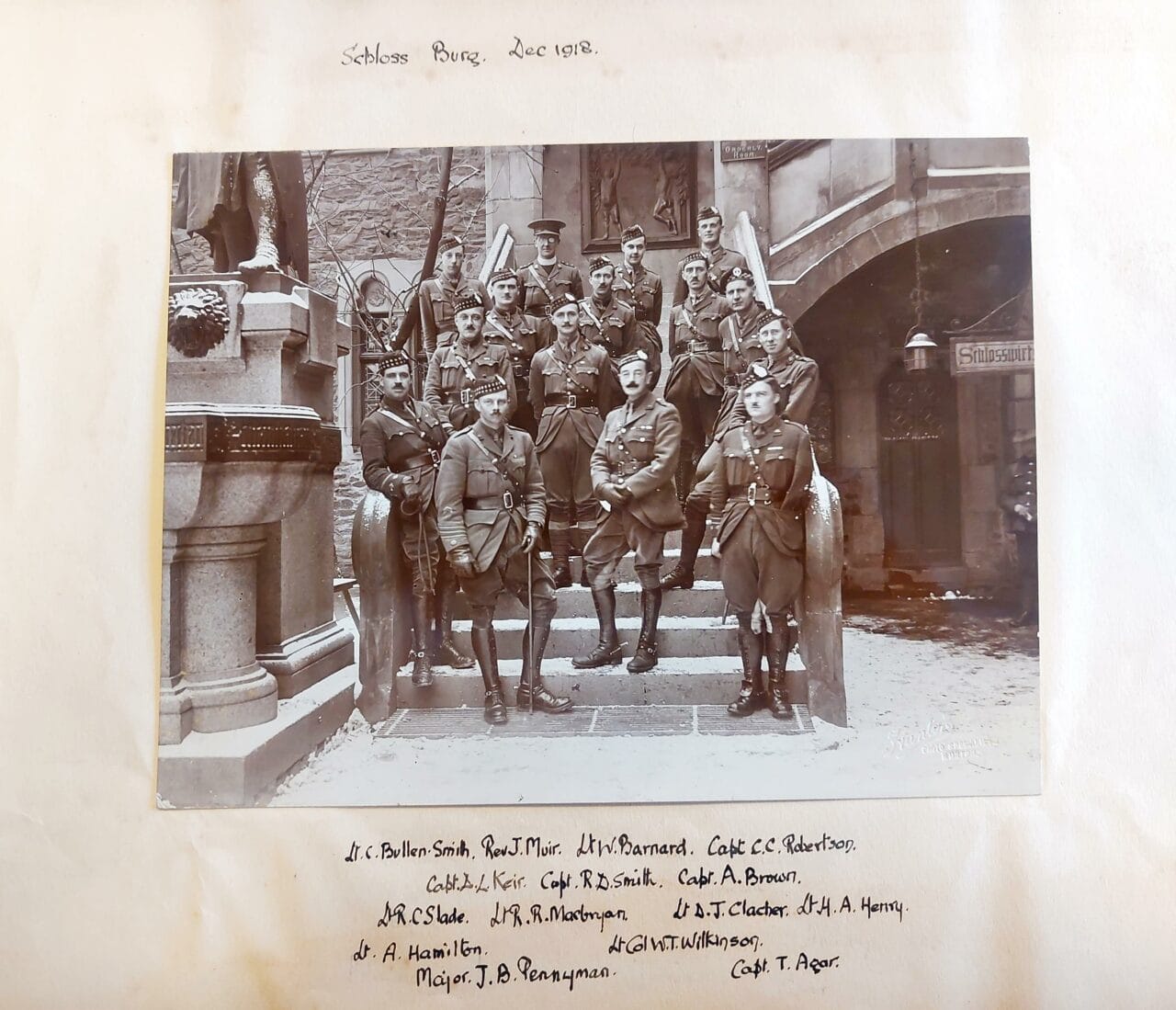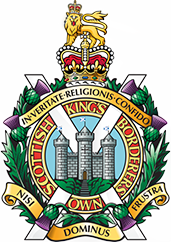The Pennyman Family and The King’s Own Scottish Borderers
From 1878 until 1924, there was a member of the Pennyman family in a prominent position of The King’s Own Scottish Borderers, with their involvement ranging from sport to the welfare of soldiers and their families. Although their family home was at Ormesby Hall in Middlesborough, their strong ties to the regiment and Berwick persisted.
Alfred Worsley Pennyman joined the regiment in 1878. Although the KOSB recruitment area has always been widespread, it is unclear as to why the family from Ormesby Hall would pick The King’s Own Scottish Borderers as its regiment of choice. Alfred was with the 2nd Battalion when it was stationed in Ireland and then served with it in Sudan and Egypt.
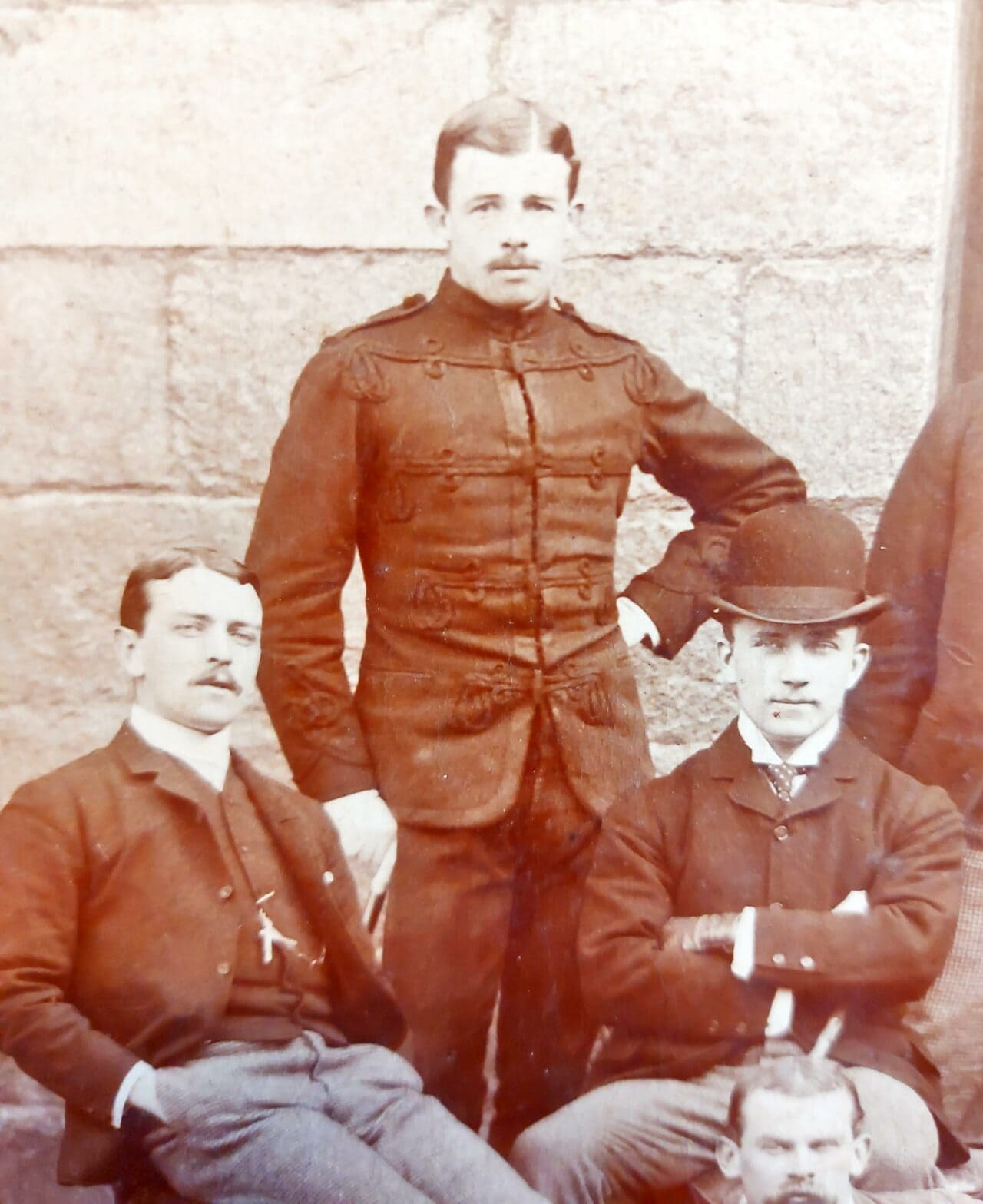
Alfred’s connection, not only to the regiment, but to its depot home town of Berwick seems to have been undeniably strong. He was a prominent sportsman in the area, was a member of the Northumberland Hunt and was an enthusiastic and talented cricketer. He was also a member of the Berwick branch of the British Legion and a regular attendee of Berwick’s Holy Trinity Parish Church.
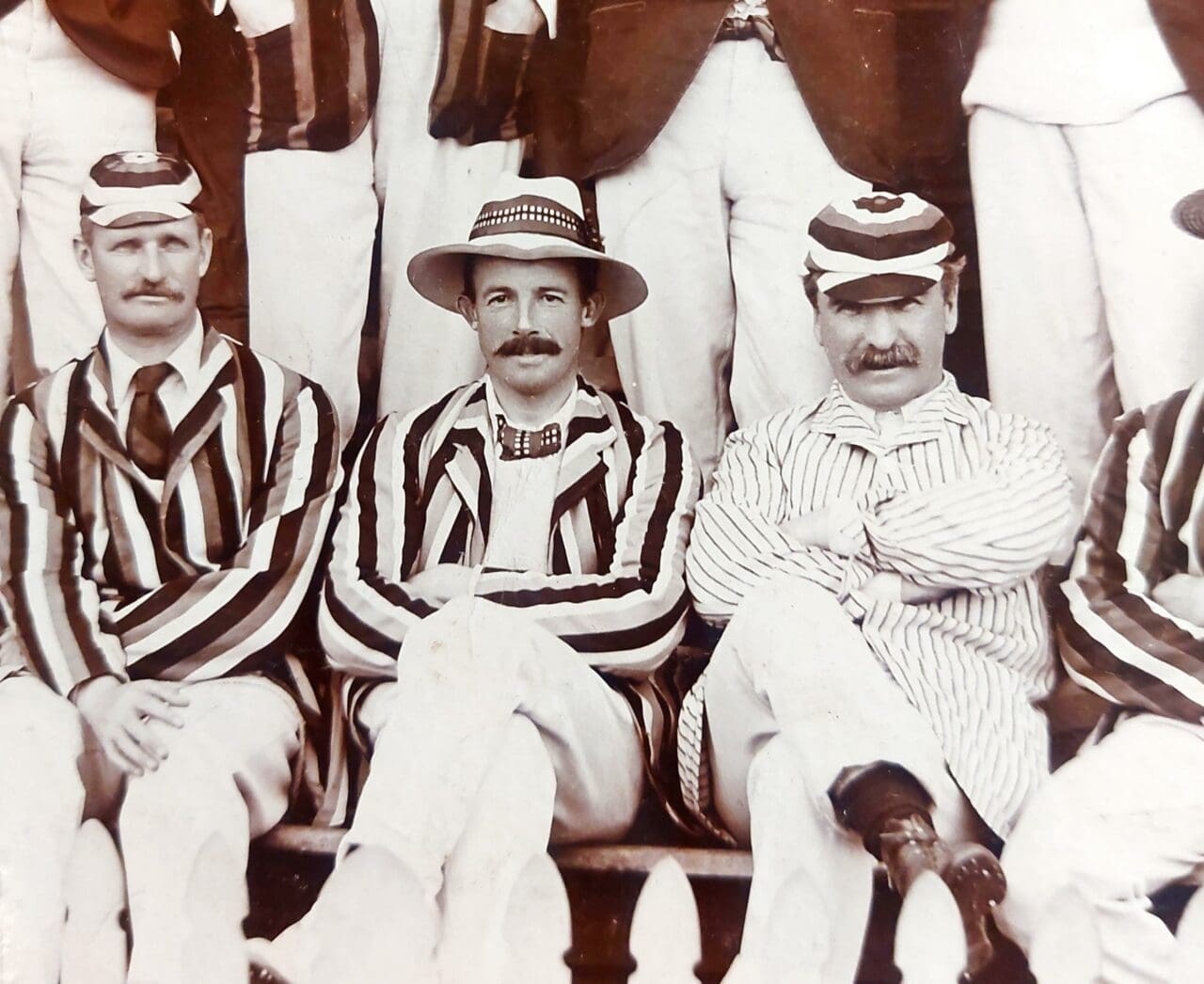
Alfred never had children but, fast forward to 1905, and his nephew also joined the regiment six years after his uncle retired. James Beaumont Worsley Pennyman joined the army after studying at Cambridge and was with the 2nd Battalion in Egypt and Khartoum, as well as a period in Berwick to train the recruits of the 3rd Battalion.
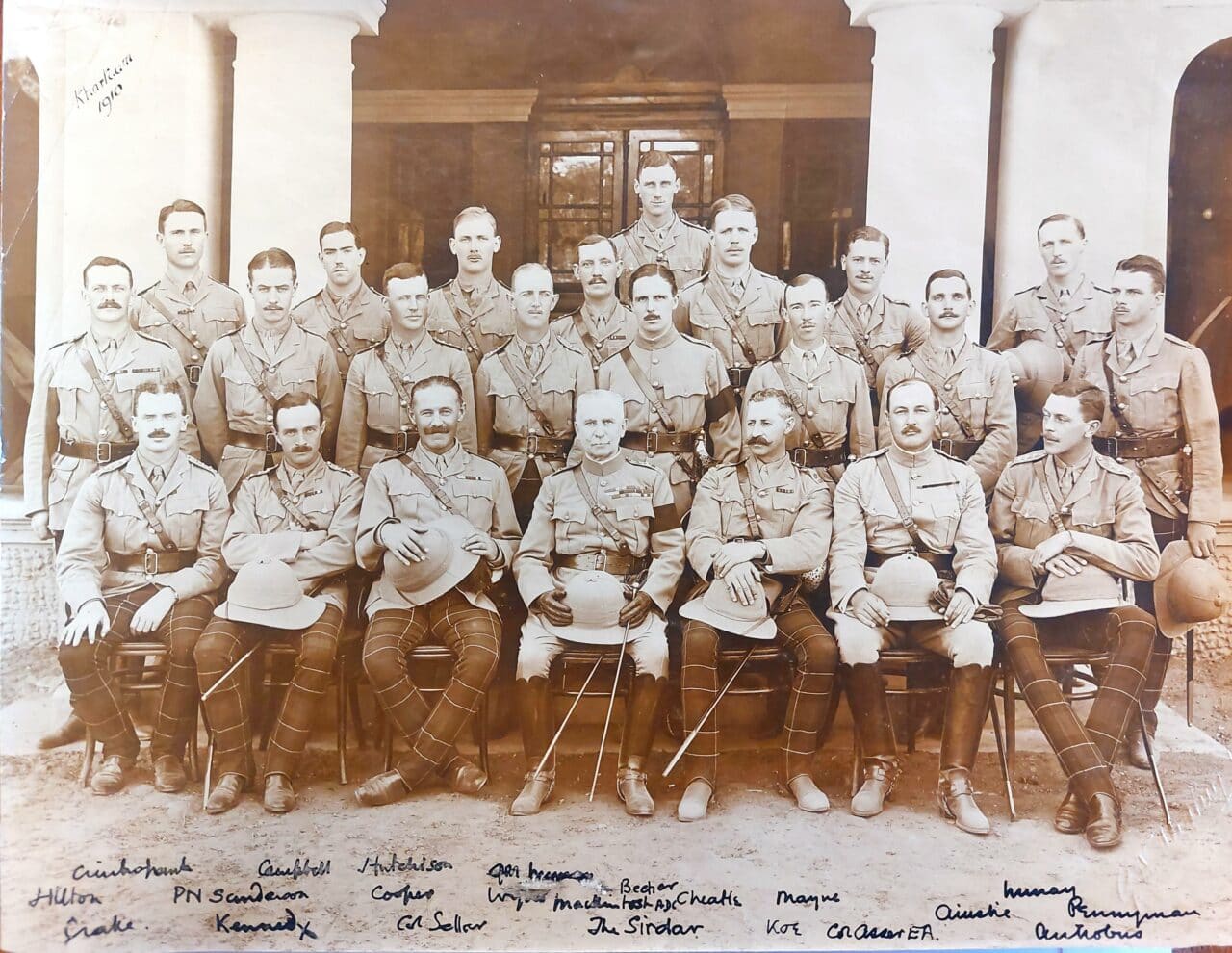
Spells in India and Ireland then took Jim to 1914 and the outbreak of World War One. During this time, uncle Alfred, though retired, was still very much part of life at the Depot in Berwick and he was appointed Competent Military Authority for the Berwick area and placed in command of the Depot.
Jim was a machine gun officer and was with the 2nd Battalion at Mons, Ypres and the Somme and he kept a detailed diary and photographic record of the first part of the war.
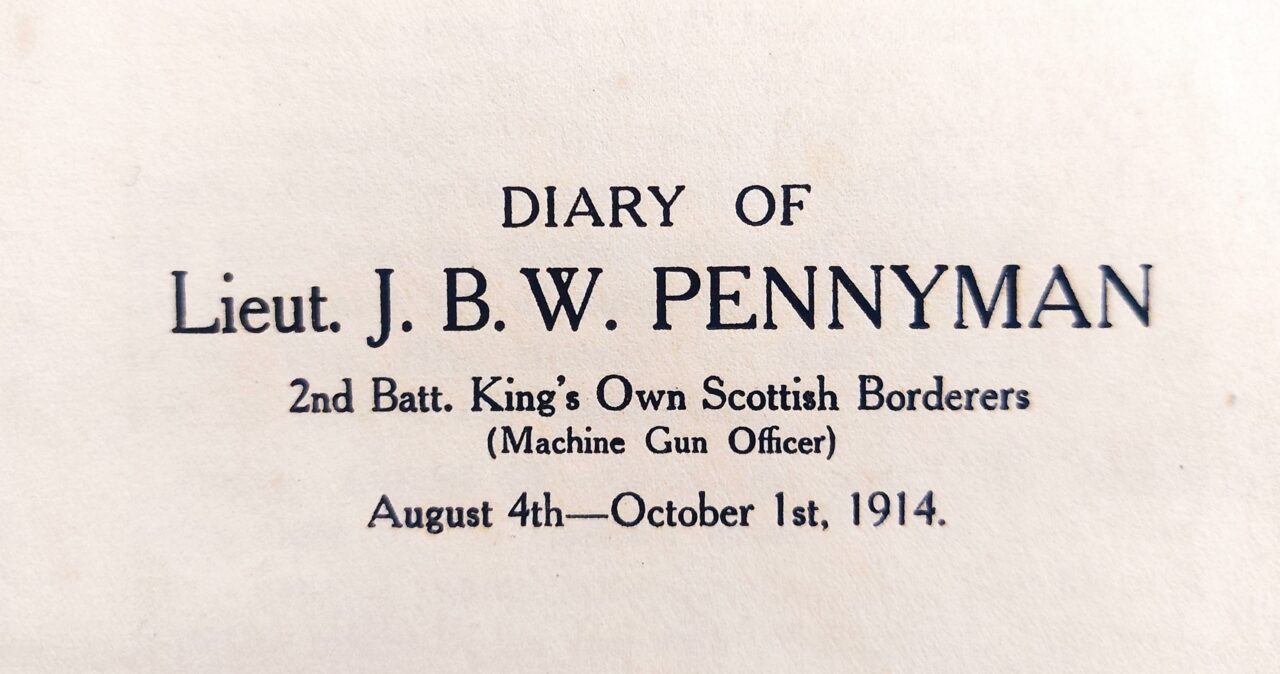
A young soldier called Tom Gilchrist was in Jim’s machine gun section and he was killed in action in October 1914; an early victim of war. After having his diary printed, Jim wrote a letter to Tom’s father, saying how he remembered Tom and how he was an excellent shot. He said that, as his and Tom’s experience had been much the same for that period, he hoped the diary might be of some comfort to him.

In 1914, Jim himself was shot and he narrowly escaped with his life. The bullet entered through his hand, passed through his thumb and then shockingly entered his lungs.
“The next thing I remember was a sensation like a blow with a cricket ball in the chest. It knocked me clean down, and I remember shouting as I felt and bleeding profusely at the mouth. I felt quite certain that I was a ‘gonner’ but managed to get up and give some directions to the gunner, then I flopped down again. Four men picked me up and carried me to a place twenty yards back where the fire was not quite so severe. The next thing I remember was being handled by the doctor in twilight”
Jim narrowly escaped with his life that day and, despite being in the thick of World War One, he still managed to find time to marry Mary Powell on Easter day, 1915. He and Mary had known each other before the war but not romantically – he had been in love with someone else whom, upon getting to know each other better, turned out not to be for him. Writing to a friend in early 1915 about Mary, he tells her that “Last November I saw my fiancée, who I have known well, and slightly disliked for 15 years, and realised in a flash that she had grown into what is just about my ideal”. After a month of Pennyman-style courtship, Mary accepted his offer of marriage and “Since then we have been in a state of besotted bliss”.
Jim’s sister Dorothy certainly approved of the match: “She is the sweetest thing, full of head and heart-capable, quick and very feminine. Personally I love her very dearly and there is no one I would rather have as a wife for my Jimbo. She understands him so thoroughly and loves all of his little jokes and at the same time appreciates the strong man in him.”
What will emerge about Mary is that she was strong, determined and kind. Dorothy describes Mary’s “sweetness with the village people” and how they will go to her for support, as they had been used to doing with Dorothy and Jim’s mother and grandmother. At the wedding, “merry peals were run on the bells at the conclusion of the ceremony” and the best man was none other than uncle Alfred.
After the war ended, Mary’s determination and selflessness became evident, as she passionately dedicated herself to the War Memorial and Widows and Orphans Funds. She became secretary of the Widows and Orphans Fund for the 2nd Battalion and, in 1920, took on the role for the whole regiment. The huge loss of life from World War One had resulted in financial difficulties for many families and Mary spearheaded the organisation that became such a comfort to many, investigating welfare cases and finding the most appropriate source of support for each one. She received many letters from women all over the UK, thanking her for the ongoing emotional and financial support.
“Dear Mrs Pennyman,
I am in receipt of your letter which is kindly inquiring as to my welfare. Dear madam, after my husband’s death I received £6 from the patriotic fund paid through the Soldiers & Sailors Families’ Association and I am now in receipt of an army pension for my child.
Perhaps it will interest you to know that with my little savings I went to London and was trained as a nurse, where I successfully passed my examination. I am now home again with my baby, she is not two years old yet. She was born after Daddy went away and he, I am sorry to say, never seen her.
You will see my sorrow is heavy, but by the help of God I will try to cheer myself by nursing others.” Mary was the only woman to sit on the War Memorial Fund panel in the early 1920s, amidst big names like Lieutenant Colonels Sellar and MacLaren and Lieutenant General Sir Charles Woollcombe. Tragically, this woman who affected so many lives for the better, died in childbirth, along with her baby, in 1924.
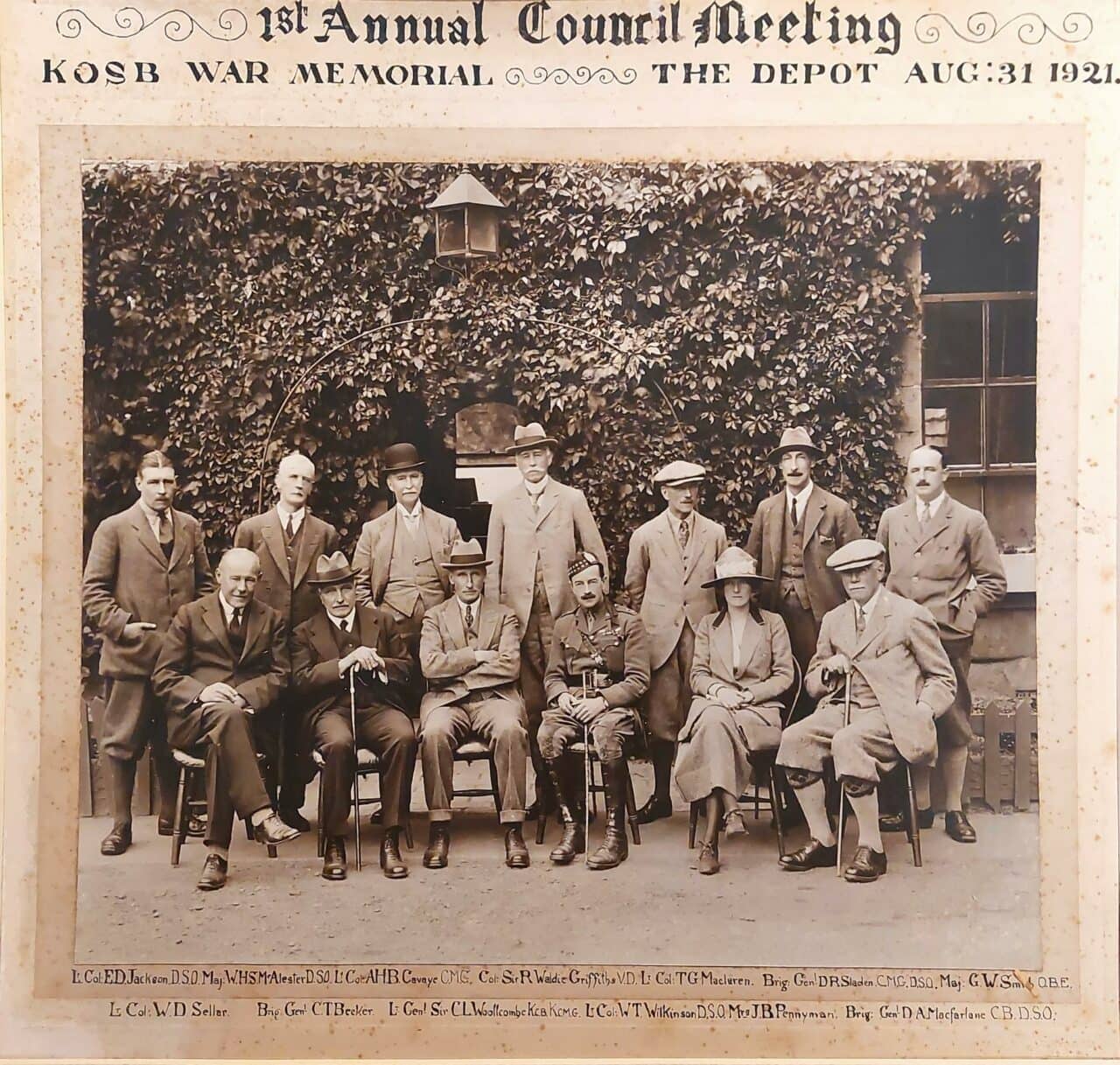
Jim undoubtedly suffered this loss greatly, with the death of his father occurring in the same year too, although perhaps this gave him focus, as he had to take on the responsibility of managing much of the family’s estate. Perhaps surprisingly soon after such devastating events, Jim met a friend of his sister’s, Ruth Knight and he writes that he “asked her to marry what was left of [him].” She was the polar opposite of Jim: arty, theatrical, and a left-wing socialist who described herself as a communist. But Jim saw this flamboyant communist and decided that she was the woman for him.
Although she seems to have been very different from Mary in many respects, she undoubtedly was both compassionate and strong-minded. She obviously saw some of the destructive effects of empire when her and Jim were on their honeymoon, commenting on Jamaica with its “cursed and unhappy past hanging over it like a thundercloud.” Jim had a passion for organic gardening and this passion fed Jim and Ruth’s enterprise to provide workable land for the use of unemployed miners. Jim and Ruth led many other community and socially centred projects, including the building of affordable housing on Ormesby estate land, and Ruth was committed to supporting the refugee cause during the Spanish Civil War.
Back in Berwick in 1934, and continuing the Pennyman tradition of commitment to social causes, Alfred Worsley Pennyman was eagerly anticipating a community fete at Ord House, held to raise money for local charities. He had organised a treasure hunt for local children but unexpectedly died just before the event took place. Both Alfred and Jim were devoted to community, be it as part of the regiment, during war or in the towns and villages they called home. Mary Pennyman’s work in establishing a responsive and effective service for veterans and their families was instrumental in helping a grieving nation cope in the aftermath of war, a service which is still necessary to this day.
